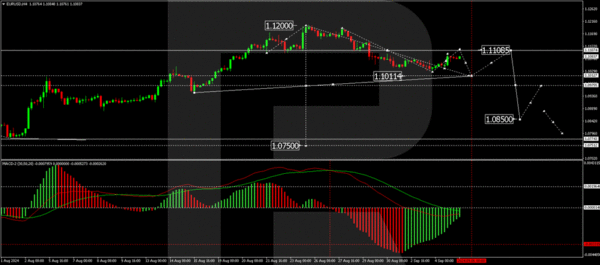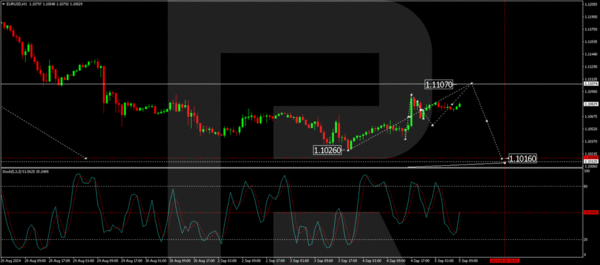The EUR/USD pair remained stable around 1.1077 on Thursday morning, following steady growth in the previous session but still confined within a sideways channel. Investors are holding back and conserving their energy in anticipation of crucial employment data from the United States, which begins with today’s ADP private sector jobs report. Although the ADP report does not directly correlate with Friday’s highly anticipated Nonfarm Payroll (NFP) report, it provides a general sense of market sentiment.
Additionally, the market will closely watch today’s weekly unemployment claims data release, especially given the Federal Reserve’s focused attention on employment indicators. These releases are expected to heighten EUR/USD volatility as the day progresses.
The spotlight will soon shift to Friday’s key employment metrics, including non-farm payrolls, the unemployment rate, and average hourly earnings for August. These indicators are pivotal ahead of the September Fed meeting. Robust employment data may support a minimal 25 basis point rate cut by the Fed, whereas weaker labour market figures could heighten the possibility of a 50 basis point reduction.
EUR/USD Technical Analysis
The pair is currently consolidating around the 1.1065 level. The market may test up to 1.1107 today, which is seen as a correction phase in the context of a broader decline. Following this potential rise, a further decline to 1.1060 is anticipated. A break below this level could signal a continuation of the downtrend, potentially reaching 1.1016. The MACD indicator supports this bearish outlook, with its signal line below zero and pointing downwards.
On the H1 chart, EUR/USD continues to consolidate around 1.1065. A slight dip to 1.1056 might occur, followed by an extension towards 1.1107 as part of a corrective pattern. Once this correction phase is completed, the downward trend is expected to resume. The Stochastic oscillator, currently just above 20, suggests a potential rise to 80, indicating room for short-term upward movement before continuing the broader bearish trend.


